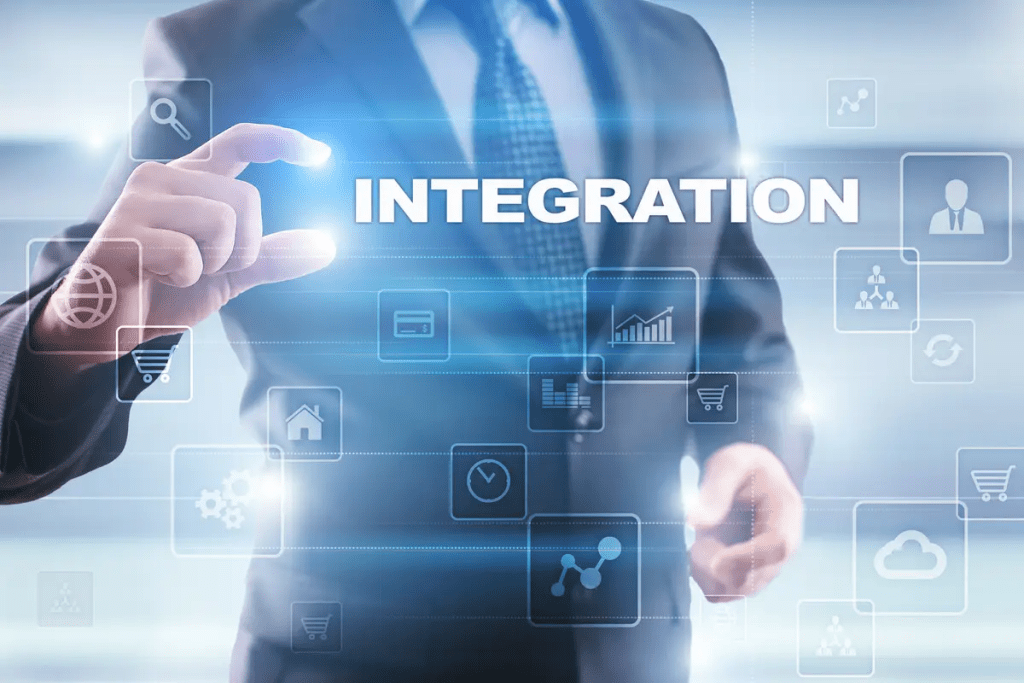iPaaS (integration platform as a service) standardizes how applications are integrated into organizations, which makes it easier to share data across applications and automate business processes.
►►► See our products: Magento POS, BigCommerce POS, Shopify POS, Phần mềm CRM, Woocommerce POS, Restaurant POS, NetSuite POS, Thailand POS, South Africa POS and Commercetools POS
Leveraging the iPaaS platform allows growing companies to eliminate manual processes and dependency on email and spreadsheets while increasing visibility, accuracy, and speed across their organization.
What is iPaaS?
iPaaS stands for Integration Platform as a Service which standardizes how data and applications are integrated into an organization. This makes it more effortless to share data across applications and automate business processes.
This single platform offers capabilities to allow subscribers to implement application, data, API, and process integration projects involving all the combinations of cloud-resident, and on-premises, endpoints. This is done by developing, executing, deploying, monitoring, and managing integration flows/processes that connect many endpoints to work together.
Here are typical iPaaS scenarios:
- Mobile application integration (MAI).
- Internet of Things (IoT) integration.
- Cloud service integration (CSI).
- Business-to-business (B2B) integration.
- Application-to-application (A2A) integration.
How Does iPaaS Work?
iPaaS means vendors offer integration services on a private or public cloud. The integration platform features a full IT infrastructure, including tools and solutions for integration work, which is available online. These vendors are also responsible for maintenance, upgrades, updates, and the reliability and scalability of the platform.
Organizations that adopt an iPaaS are only responsible for developing business processes, mapping and configuration work, while the platform vendor will take care of the rest. That way, these organizations can concentrate on their core business.
iPaaS also allows you to connect almost all third-party services, databases, and applications to a CRM or ERP system. This is extremely useful when integrating clouds, SaaS, or adopting a multi-cloud strategy.
The CRM or ERP system itself can also be included in an overarching network, like a HIP (Hybrid Integration Platform), in a multinational company with affiliates, subsidiaries, and an ecosystem of suppliers, customers, and other stakeholders.
Why iPaaS?
iPaaS standardizes how existing applications are integrated and new applications are added to an enterprise, making it more effortless to move all kinds of data across applications while delivering the necessary integration functionality as well.
Integration is standardized in the sense that iPaaS solutions dynamically maintain, update, and monitor processes across applications, which are constantly being deleted, changed or added. iPaaS also allows both technical engineers and data consumers to build, maintain, and manage integrations easily.
iPaaS Use Cases
- Customer 360: Gain a real-time, single view of the customer.
- Cloud Data Migration: Prepare and deliver data from on-premise systems to new cloud applications, data lakes, and DWHS
- Operational Intelligence: Real-time churn prediction, credit scoring, fraud detection
- Data Privacy & Governance: Govern data to comply with regulations: GDPR, CCPA, LGPD, etc.
- Test Data Provisioning: Provision test data on demand to accelerate dev cycles, work agile.
- Legacy Modernization: Build new applications on top of Digital Entities and gradually retire legacy systems for cost rationalization.
Conclusion
More and more organizations are counting on iPaaS to manage data and applications more easily, integrate legacy systems more quickly, solve integration problems more thoroughly, reduce toil, and improve employee morale.
There are various reliable vendors delivering solutions for enterprise-grade data/app integration, such as KinCloud. Let’s take a shot to see how it can help your organization right now!
